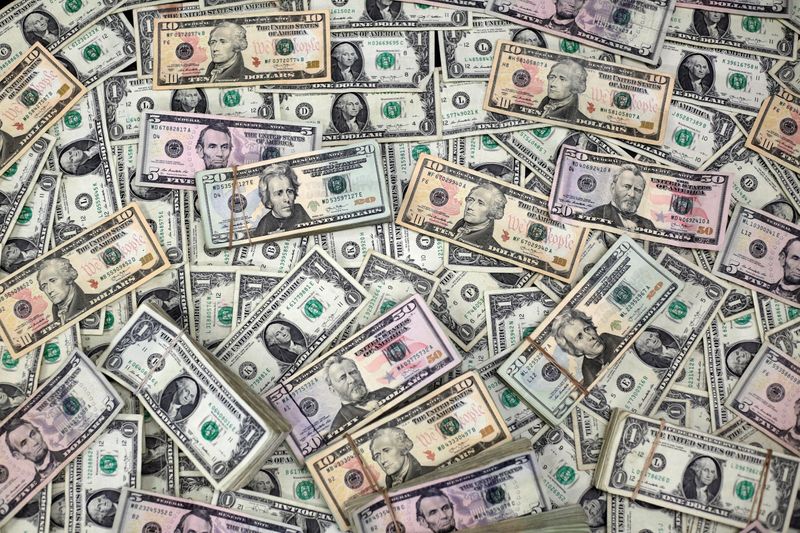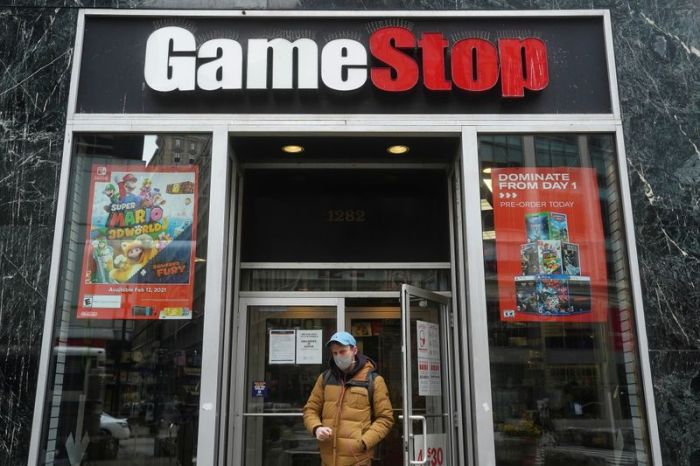NEW YORK (Reuters) – The dollar was little changed on Friday while the Japanese yen sank to its lowest since mid-November as investors rebalanced portfolios for month-end.
Bitcoin also jumped to a two-week high as a movement by retail investors to pile into certain stocks expanded to cryptocurrencies.
The greenback has been largely range-bound against a basket of currencies for the past two weeks as investors evaluate whether a selloff that sent the currency down almost 7% last year is likely to continue.
It was little changed against a basket of currencies on Friday at 90.57. The index is up 1.53% from a three-year low of 89.206 reached on Jan. 6.
“People are waiting for fresh drivers and I don’t think we get them ‘til next month,” said Marc Chandler, chief market strategist at Bannockburn Global Forex in New York.
“The question is whether the dollar’s correction continues or it is over, and I think that the jury is still out.”
Employment data for January released next Friday is the next major economic driver, while investors are also focused on fiscal stimulus.
The U.S. Senate and House of Representatives will move next week on President Joe Biden’s plan to deliver COVID-19 relief to Americans and businesses reeling from the pandemic, top Democrats said on Thursday.
The yen underperformed on Friday even as risk appetite worsened, hitting a two-month low versus the dollar and a nearly three-year low against the Swiss franc.
Analysts attributed the move to several factors, including the dollar’s yield advantage over the Japanese currency and month-end portfolio reshuffling.
Bank of Japan policymakers discussed the merits of allowing long-term yields to move more flexibly around the bank’s target, a summary of opinions at their January meeting showed on Friday.
Some of the move is also likely due to large short positions against the greenback being squeezed, said Chandler. “The market was a bit vulnerable to this,” he said.
The dollar was last up 0.50% at 104.73 yen. It earlier rose to 104.94.
“It’s a very interesting move especially given that at the same time global equity indices would suggest that risk sentiment is not improving,” said Valentin Marinov, head of G10 FX research at Credit Agricole, referring to the yen’s drop versus the dollar.
The Japanese currency typically gains a safe-haven bid when risk sentiment sours.
U.S. stock indexes slumped on Friday as investors gauged the efficacy data of Johnson & Johnson’s COVID-19 vaccine, while a standoff between Wall Street hedge funds and small, retail investors contributed to volatility. [.N]
Bitcoin was boosted after Tesla Inc chief Elon Musk tagged the cryptocurrency in his Twitter biography. Musk wrote simply “#bitcoin” in his biography on the social media site.
It was last up at 2.2% at $34,300, after earlier reaching$31,990..
“Bitcoin got lost in the GameStop mania and Musk’s tweet brought cryptos back into the limelight,” said Edward Moya, senior market analyst at OANDA.
Assets that would benefit from decentralized finance are gaining traction as some retail traders express frustration that online trading brokers including Robinhood have curtailed their ability to trade stocks including GameStop and some cryptocurrencies.
The dollar also dipped to a three-week low against the Chinese yuan in offshore markets as China’s short-term money rates rose for a fifth straight day, busting above the central bank’s interest rate corridor ceiling..
“At the margin, tightening money market conditions in China, which are boosting local rates and helping lift the CNH out of its recent consolidation against the USD, may be adding to broader market anxieties and weighing on USD sentiment,” analysts at Scotiabank wrote in a report on Friday.
(Additional reporting by Tommy Wilkes in London; Editing by Jan Harvey and Ken Ferris)























